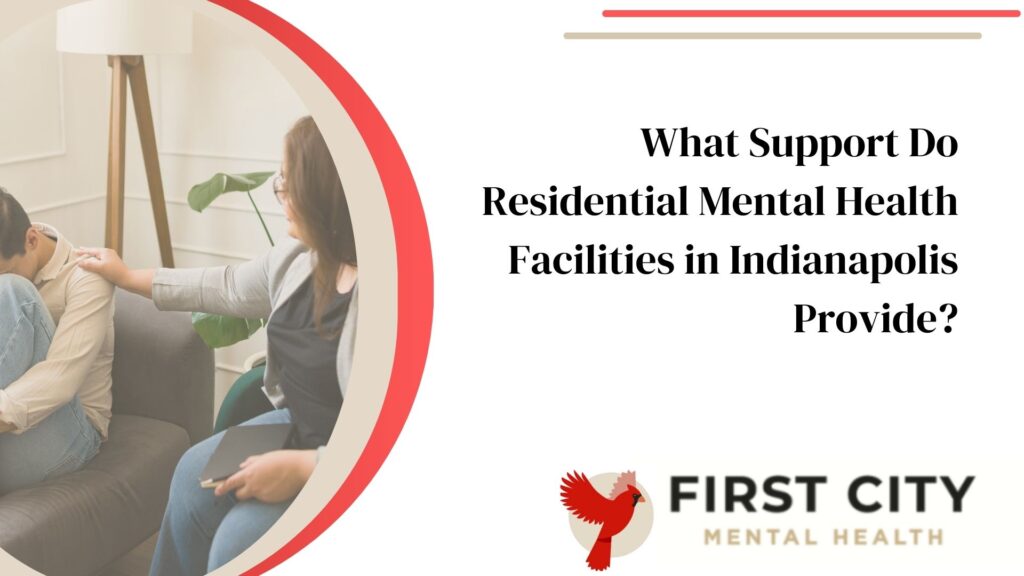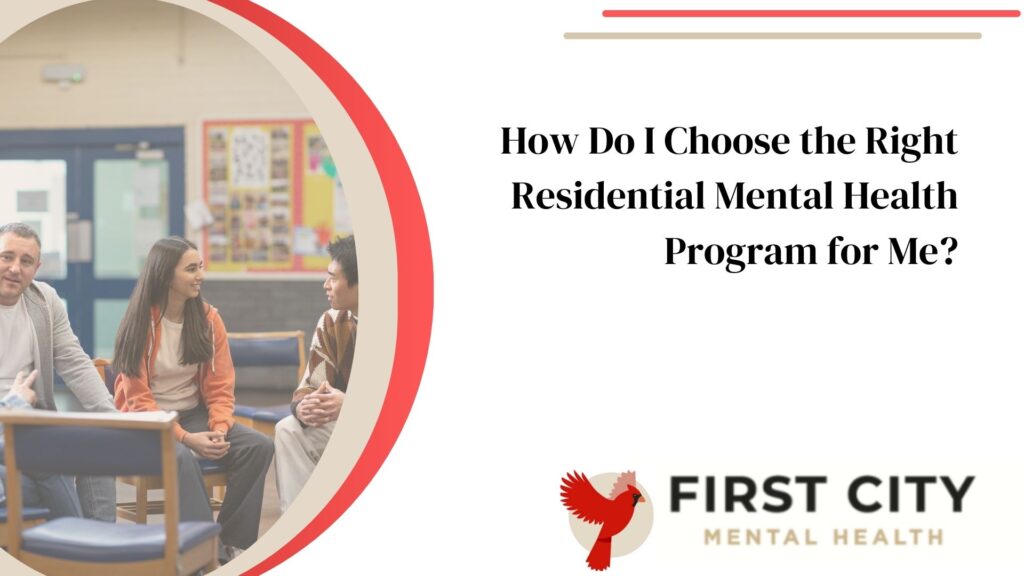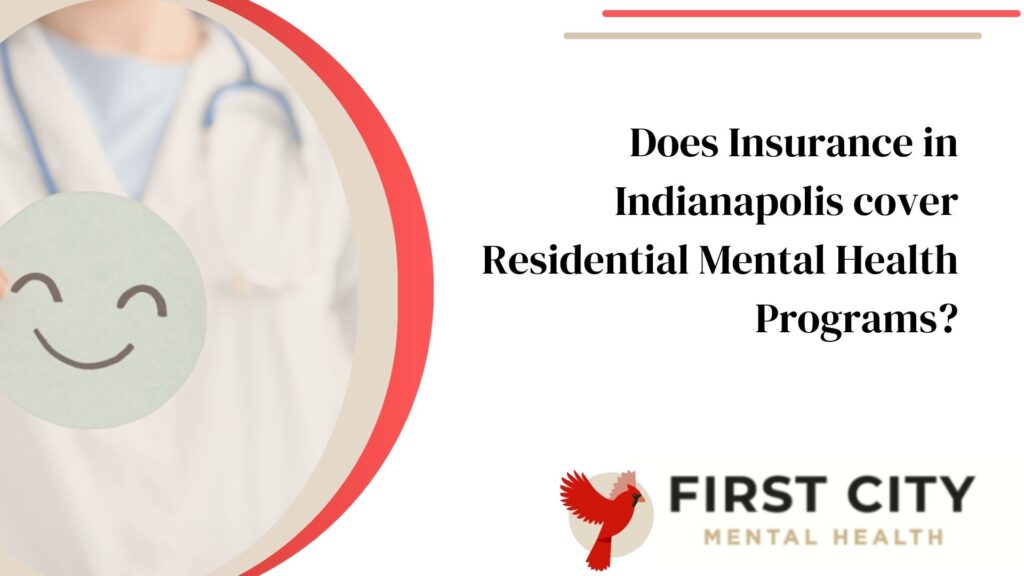The Power of Partnership: Sycamore Behavioral Health Joins Forces with NAATP for Better Treatment Outcomes
January 15, 2025
What Are The Benefits of Adult Intensive Outpatient Program in Indianapolis?
January 15, 2025More than half of adolescents struggle with mental health issues today. Residential mental health Indianapolis provide essential support.
These programs offer therapies such as cognitive behavioral therapy and group sessions. First City Mental Health Centre is one such example, providing specific care for younger people. Their approach involves therapy and activities, so it’s an encouraging environment. You can read about what they offer here.
The program you choose makes a difference. Finding a place that fits your needs can make all the difference.
Key Takeaways
- Residential mental health care provides a highly structured and supportive setting for people who need intensive treatment for mental health conditions.
- Facilities in Indianapolis provide many different benefits. They offer individualized treatment plans, 24-hour professional care, and a community of support to help the healing process.
- You’ll find complete support services, including individual therapy, group sessions, medication management, and recreational activities that promote comprehensive recovery.
- Your first day at the residential facility will consist of an informative orientation. You’ll meet your treatment team and take the time to settle into your new environment.
What Is Residential Mental Health Care?
Residential mental health treatment Indianapolis care is a structured program of treatment. It focuses on young adults and adolescents who are suffering from certain mental health disorders.
In this setup, you live on-site and receive continuous care. This is very different from outpatient programs, where you attend appointments and then return home. These programs create an incredibly safe and stable environment. Here, people can focus on healing without the distractions and stresses of everyday life.
Think of it as a place that houses therapy, life skills, and education, but in an individualized manner. In Indianapolis, this means being granted access to high-quality facilities where first-rate professionals closely engage with residents to develop personalized plans. The goal goes far beyond treating symptoms. We address root causes and offer tools for sustainable recovery.
What Are the Benefits of Residential Mental Health Treatment in Indianapolis?
When you’re struggling with your mental health, having someone around 24/7 is a game changer. Residential mental health facilities in Indianapolis provide round-the-clock care and supervision. This means there’s always someone ready to help, whether late at night or early in the morning.
The staff are exceptional caregivers with extensive experience—in many cases, 19+ years of experience—so they really know their business! They are trained for a variety of mental health situations and can provide the guidance you need whenever you need it.
Plus, with 24/7 security and nursing staff, you can feel safe and looked after. Detoxing from substance use is hard. These programs provide full and continuous care, guiding you through the process.
What Support Do Residential Mental Health Facilities in Indianapolis Provide?

Educational Support
One of the most significant benefits of residential mental health treatment facilities is the educational support available, especially for younger residents. Facilities often have on-site, accredited schools to ensure residents do not miss out academically while getting treatment. This setup is particularly advantageous for residents aged 12 to 35. It allows them to further their education in an encouraging environment.
Educational programs are customized to each individual’s needs, emphasizing academics and life skills. This dual approach empowers residents with essential tools. As a result, they can thrive both in and out of the classroom. Integrating education into the treatment plan helps them feel a sense of normalcy. This sense of purpose is essential to their being.
Multidisciplinary Team
Another aspect that distinguishes residential mental health facilities is the involvement of a multidisciplinary team. These teams often include psychiatrists, psychologists, therapists, nurses, and educators working collaboratively. This collaborative approach addresses every aspect of a resident’s well-being, from psychiatric care and medication management to therapy and life skills programming.
A resident with anxiety and a substance use disorder receives coordinated care from specialists in each. This teamwork increases their likelihood of having a successful recovery. A support network is crucial, where people feel the same things as you. This environment nurtures social skills and emotional regulation and provides a sense of belonging and hope.
What Should I Expect During My First Day in Residential Mental Health Treatment?
It’s really about knowing your residential mental health treatment history and what you want to get out of your time there. They’ll ask about past treatments, any meds you’ve been on, and what brought you to seek help. This one is critical to get open with, even if it feels weird. You’re laying the groundwork for your treatment plan, so share honestly.
If you go on a weekend or holiday, you may encounter a temporary psychiatrist. When the regular workweek starts, you are assigned to a permanent therapist. This step is the foundation for everything else, allowing the team to personalize your plan.
You’ll get an orientation to the facility, which means a tour to show you around. You’ll find out where everything is, such as the dining room, therapy rooms, and possibly a gym or garden. Then, there’s an overview of the daily routines. You’ll learn about headcounts throughout the day to ensure everybody’s safety and that they are accounted for.
The schedule generally features support groups every day, either led by professionals or your peers. They’re spaced out to give you breaks and time to reflect. People are talking about treatment and the different options available. They’re thinking about a 28-day intensive therapy program or a partial-hospitalization program if that works better.
How Do I Choose the Right Residential Mental Health Program for Me?

First up is understanding what you need. Everyone’s mental health journey looks different, so it’s essential to identify your unique needs and goals. Are you experiencing something like obsessive-compulsive disorder or perhaps self-injurious behaviors? If so, seek out programs that are well-versed in these areas.
You want a program that knows its stuff and can offer residential mental health that align with your goals. It’s about the condition and what you want to achieve. Whether it’s coping skills or a better understanding of your own mental health, write these down; they’ll guide your search.
Visit Potential Facilities
Next, hit the road yourself and visit these places if you can. Seeing them in person makes you feel better than any brochure or website. Check out the environment – is it welcoming? Is there a sense of safety? Meet the clinical staff. Look for a dedicated, empathetic team. Having a good Medical Director can change the world. Plus, see if they offer 24/7 support. Having trained staff on hand 24/7 is crucial for your peace of mind.
Understand the Treatment Modalities Offered
Get into what treatment options they offer. You want to know what type of therapy they use and whether it’s evidence-based. Those are therapies that you know work, right? Does the program offer a personalized, fully-fledged treatment plan? That’s what you’re after.
It also needs to be modalities that resonate with you. You may like individual counseling, or group therapy is more your jam. Whatever it is, make sure that it works for you.
Consider Length of Stay and Aftercare Planning
Consider how long you want to be there. Programs can last anywhere from a few weeks to several months. Longer stays offer a more comprehensive approach, which helps.
It’s not solely a question of time. Check the aftercare plan. A solid aftercare plan will help you once you’re out. It could involve continuing therapy or attending support groups. This part is critical for your ongoing well-being after the program is finished.
Important Considerations
- Ensure the program has experience in treating your specific issues.
- Look for a team that’s dedicated and caring.
- 24/7 Support: Ensure round-the-clock support is available.
- Check for therapies that are proven to work.
- A supportive environment can be a game-changer.
- Make sure there’s a plan for after you leave.
- Don’t hesitate to dig deeper or seek a second opinion.
What Conditions Are Treated in Residential Mental Health Facilities in Indianapolis?
Best mental health facilities in Indianapolis provide support for people experiencing a wide range of mental health difficulties. These facilities offer vital care and resources to people in need.
You’re starting to look at issues that require some focus and time. Let’s break it down:
- This is a big one. Facilities here are offering a safe space for those struggling with depression. They’re really focused on things like building coping strategies and managing day-to-day. It’s about building a support system and getting you through the tough periods.
- Anxiety can be overwhelming, and these facilities know it. They offer tools and therapies that help lower levels of anxiety. That is why it is so important to deal with the symptoms. As important is finding their triggers and how to handle them in real life.
- If you’re fighting PTSD, the residential programs in Indianapolis offer a structured, compassionate environment. Here, you can actively work through your trauma and must heal your trauma. T
How Much Does Residential Mental Health Care Cost in Indianapolis?
If you are looking for mental health facilities Indianapolis care options in Indianapolis, it’s important to understand the cost. Do your homework and see what you can reasonably afford. Think of it like this: you’re not just paying for a place to stay but for a whole package that includes room and board, therapy sessions, medical supervision, and more.
Prices can vary quite a bit. Some places charge a few hundred bucks a day; some could be over a thousand. It’s all about what they provide and what you require. A basic program with shared accommodations and group therapy typically costs less. A high-end facility that provides private rooms and personalized care plans costs more.
Knowing this allows you to plan better and avoid surprises.
Does Insurance in Indianapolis cover Residential Mental Health Programs?

If you ask whether insurance covers residential mental health Indianapolis, you’re not alone. Many programs accept different insurance plans. This can also lead to a much lower out-of-pocket cost on your part. That’s a huge relief. Imagine knowing that the care you need is available because of insurance.
However, only some programs take into account every insurance plan. Before you do, read on to see which plans it accepts. Some locations may accept major providers such as Blue Cross Blue Shield, Aetna, or UnitedHealthcare, while others may have tailored partnerships with local insurance companies. It’s all about aligning their offerings with your own needs.
Conclusion
The right choice in mental health therapist Indianapolis care can make a tremendous difference in your life. In Indianapolis, residential care options offer support and understanding. They help folks with a wide range of conditions. You get cared for in a place dedicated to healing.
The cost may seem intimidating, but many insurance plans help cover these programs. It’s worth investigating further. On your first day, you will be welcomed with open arms and given a full overview of what lies ahead. Residential programs in Indianapolis provide a place where recovery is the priority.
Do your homework, ask questions, and don’t be afraid to contact facilities. Find a program that fits you like a glove.Need a little help to get started? Reach out to local services or speak with a healthcare provider. You’re not alone on this journey; there’s a path to feeling better.
Start now.
Frequently Asked Questions
What is residential mental health care?
Residential mental health care provides 24/7 support in a structured environment. It offers intensive therapy and medical supervision for people with mental health disorders. It’s about stabilization and recovery.
What should I bring to a residential mental health facility in Indianapolis?
Pack comfortable clothing, personal hygiene items, and prescribed medications. Check with the facility for specific guidelines. They may have restrictions on electronics or other personal items.
How long do residential mental health programs last in Indianapolis?
Program lengths range from months to years, depending on student circumstances. Stays usually range between about 30 and 90 days. Some programs offer extended care options for continued support.
What types of therapy are offered in residential mental health facilities?
Facilities offer various therapies like individual, group, and family therapy. They may also provide specific treatments such as cognitive-behavioral therapy (C.B.T.) or art therapy.






